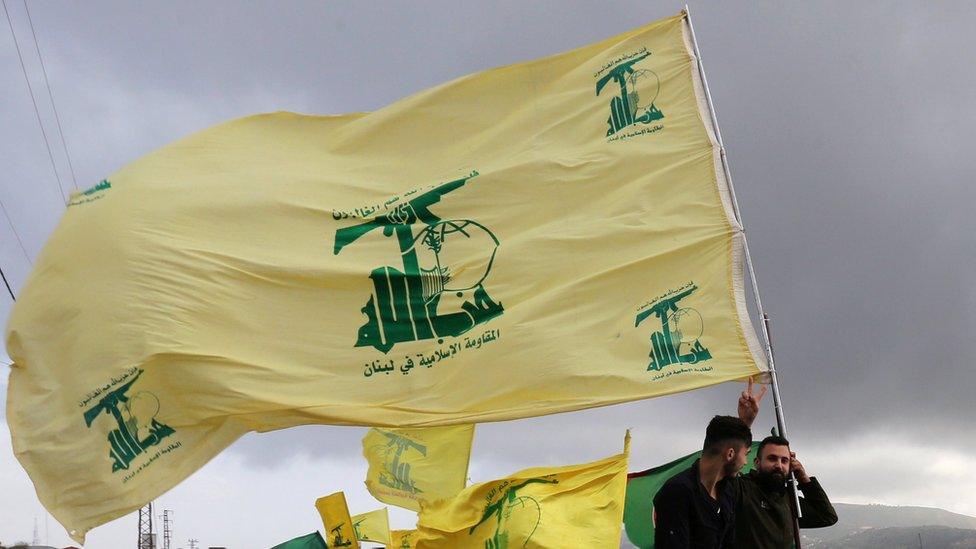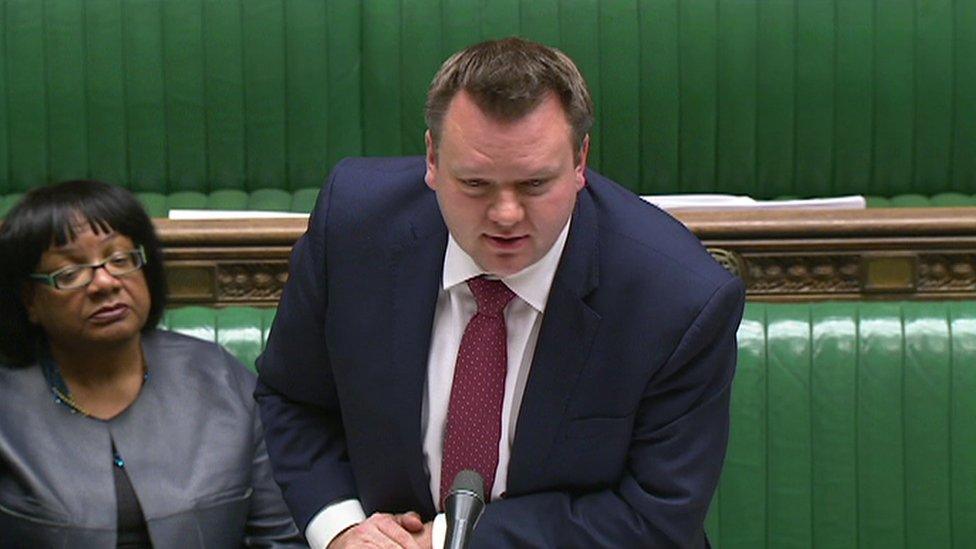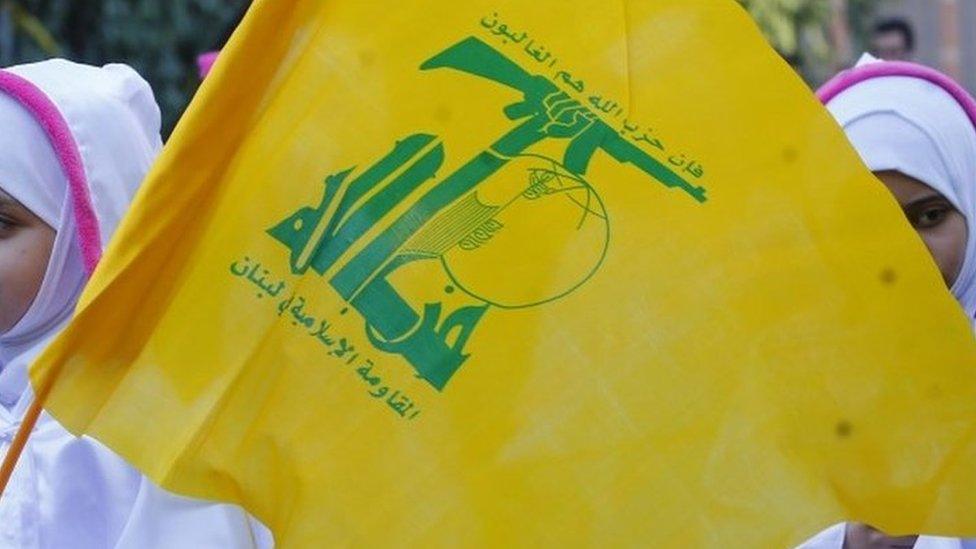Labour row erupts over Hezbollah ban
- Published

Hezbollah supporters fly the group's flag in Lebanon
Labour MPs have criticised their own front bench during a debate in the Commons over the proscribing of Hezbollah as a terrorist organisation.
Parts of the Lebanese group have been proscribed since 2001, with its military wing banned since 2008.
The government has said it can no longer distinguish between the group's military and political wings, and will ban it in its entirety.
But earlier, a Labour spokesman questioned the government's evidence.
Shadow home office minister Nick Thomas-Symonds said Labour would not be opposing the motion on Tuesday night and it passed without a vote.
If the decision is approved by the House of Lords, supporting Hezbollah will become an offence carrying a sentence of up to 10 years in prison.
Mr Thomas-Symonds was criticised by Labour colleagues for not taking a stronger stance, and he declined to respond to Home Secretary Sajid Javid when asked to be clear if he supported the ban.
Hezbollah - translated as the Party of God - is a Shia Muslim political, military and social organisation that wields considerable power in Lebanon.
It was formed as a resistance movement during the Israeli occupation of southern Lebanon in the early 1980s.
The militant group's capture of two Israeli soldiers in a cross-border attack led to a month-long war with Israel in 2006.
But last month, its political wing was awarded three cabinet posts in the newly formed Lebanese cabinet after it made gains, alongside its allies, in the 2018 parliamentary elections.
The group, which is backed by Iran, has sent thousands of its fighters to Syria to support forces loyal to President Bashar al-Assad in battles against predominantly Sunni Muslim rebel forces and the jihadist Islamic State group.
'No clear evidence'
When Home Secretary Sajid Javid announced the ban, external, he said Hezbollah was "continuing in its attempts to destabilise the fragile situation in the Middle East" and that he would ban "any terrorist organisation which threatens our safety and security, whatever their motivations or ideology".
He said the group was "committed to armed resistance to the state of Israel" and "continues to amass weapons in direct contravention of UN Security Council Resolutions, putting the security of the region at risk".
Before the debate, a Labour spokesman said: "The Home Office has previously ruled that there was not sufficient evidence that the political wing of Hezbollah fell foul of proscription criteria, a position confirmed by ministers in the House of Commons last year.
"Ministers have not yet provided any clear evidence to suggest this has changed."
The spokesman also said that because the political arm was part of a democratically elected government, such a ban would interfere with diplomatic relations.
Mr Thomas-Symonds said it was his job to "provide scrutiny" of the home secretary.

Shadow home secretary Diane Abbott watched on as Nick Thomas-Symonds presented Labour's position in the Commons
But Labour MP Wes Streeting hit back at the comments during the debate, saying: "There is a long and proud tradition, a strong and proud social democratic tradition, in the Labour Party of confronting and facing down murderous, hateful ideology."
Referring to Mr Thomas-Symonds, he said: "I deeply regret that that proud tradition has not found expression at the frontbench despatch box this evening, but it will find expression on the backbenches."
And he added: "I would just say plainly, simply and unequivocally, it is not good enough to say we won't be opposing - we should be making clear that we would troop through the lobby and vote for it if there's a division. That's what people across the country want to hear."
His colleague Louise Ellman also criticised the shadow home office minister for being "unable to give proper, full support to the banning of this terrorist organisation Hezbollah in its entirety."
She added: "Hezbollah are not our friends and today would have been a very good opportunity to say so."
'One and the same'
Presenting the new measure in the Commons, Mr Javid said: "There have long been calls to ban the whole group with the distinction between the two factions derided as smoke and mirrors.
"Hezbollah themselves have laughed off the suggestion there is a difference.
"I've carefully considered the evidence and I'm satisfied they are one and the same with the entire organisation linked to terrorism."
In addition to Hezbollah, the draft order also proscribed Ansaroul Islam and Jamaat Nusrat al-Islam Wal-Muslimin (JNIM) as terrorist organisations.
Ansaroul Islam and JNIM are militant Islamist groups active in West Africa - both have claimed responsibility for attacks in the region.
- Published25 February 2019
